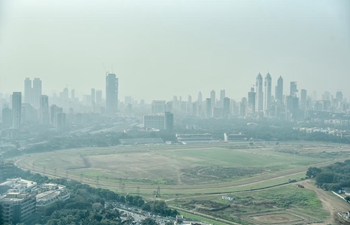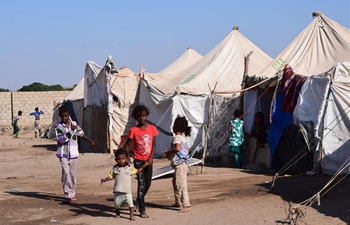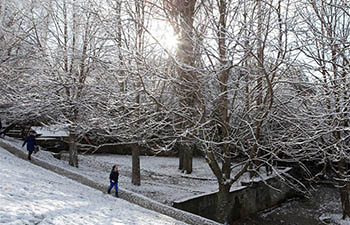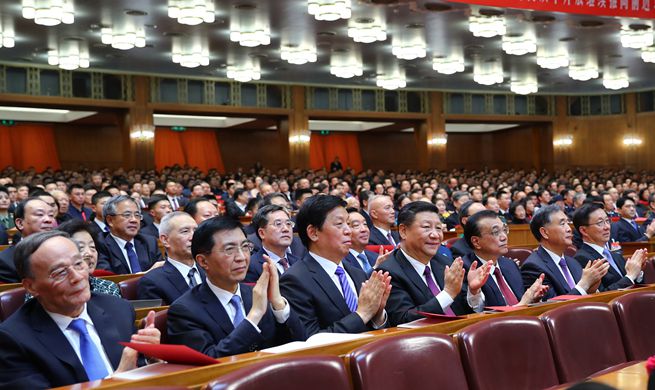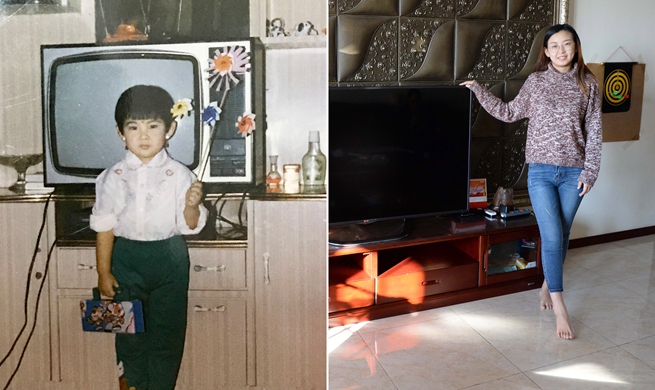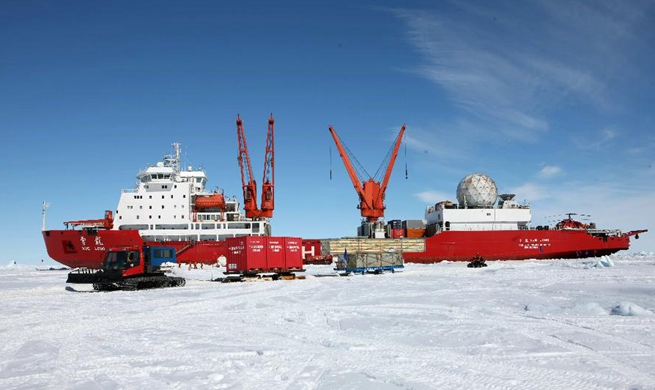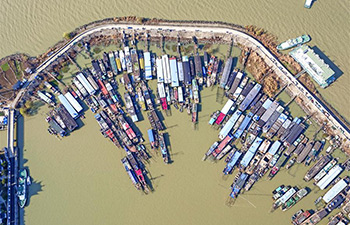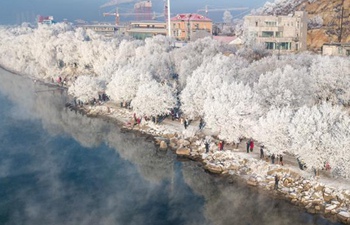RAMALLAH, Dec. 15 (Xinhua) -- Israeli army raided early Saturday the Al-Am'ari refugee camp in the south of West Bank's Al-Bireh city and blew up a building in the camp.
Hundreds of soldiers raided the city after midnight and surrounded Am'ari refugee camp, particularly the home of Abu Hmeid family in the center of the overcrowded camp, whose son, Islam Abu Hmeid, is imprisoned by Israel after being accused of killing an Israeli soldier during a raid of the camp last June, Palestinian sources said.
Israeli forces sealed off the area surrounding the four-story building where dozens of activists and supporters kept an around-the-clock vigil in attempt to block the demolition.
Such support came after the Israeli court gave the army the green light to demolish the building as a collective punishment against the entire family for the act of the imprisoned son.
Soldiers evacuated all neighboring homes and removed activist to a nearby football field, and around 400 of the evicted were locked up in the field.
The Palestinian Red Crescent Society (PRCS) interfered to provide medical aid to a pregnant woman who was in labor and women and children were taken to nearby school building and provided with primary relief such as covers and water, said the PRCS.
The military forces placed explosives underneath the house, blowing it up at around 7:00 a.m. local time. A second explosion took place around two hours later.
During the raid, Palestinian youth blocked roads and hurled stones against military vehicles and soldiers who responded by firing tear gas and rubber bullets toward the youth and reporters covering the incursion.
Palestinian medical sources reported around 50 injured people, including one journalist.
The Israeli army had previously demolished the Abu Hmeid house twice, in 1994 and 2003. Five of the family members, not including Islam, are imprisoned by Israel, four of whom are sentenced to multiple life terms, and the other was killed during a military operation against the Israeli occupation forces in 1994.
Islam Abu Hmeid was arrested by Israel last June, after being accused of killing an Israeli soldier by dropping a large stone on him during an incursion into the refugee camp. His trial begun last August.
Om Nasser Abu Hmeid, mother of Islam and his imprisoned siblings, told reporters that "we will not succumb or surrender... they shall demolish, we shall rebuild."
In reaction, the Palestinian government released a statement Saturday morning holding the Israeli government responsible for the deterioration of the situation on the ground as a result of its incursions.
Government Spokesperson Yousef Al-Mahmoud described the incursion as a "scene of collective punishment," demanding "immediate international intervention and provision of international protection for our unarmed Palestinian people."
Israel usually allows the demolition of homes that belong to families of Palestinians it accuses of attacking Israelis, using the policy as a deterrence step.
According to Israeli rights group B'tselem, "demolishing homes as a form of collective punishment is one of the most extreme measures that Israel has employed in the West Bank, including East Jerusalem, since the occupation began in 1967."
Legal experts say it is a retaliatory measure that is aimed at incurring harm to people who have not been involved in wrongdoing. It constitutes a form of collective punishment, which goes against international law.




